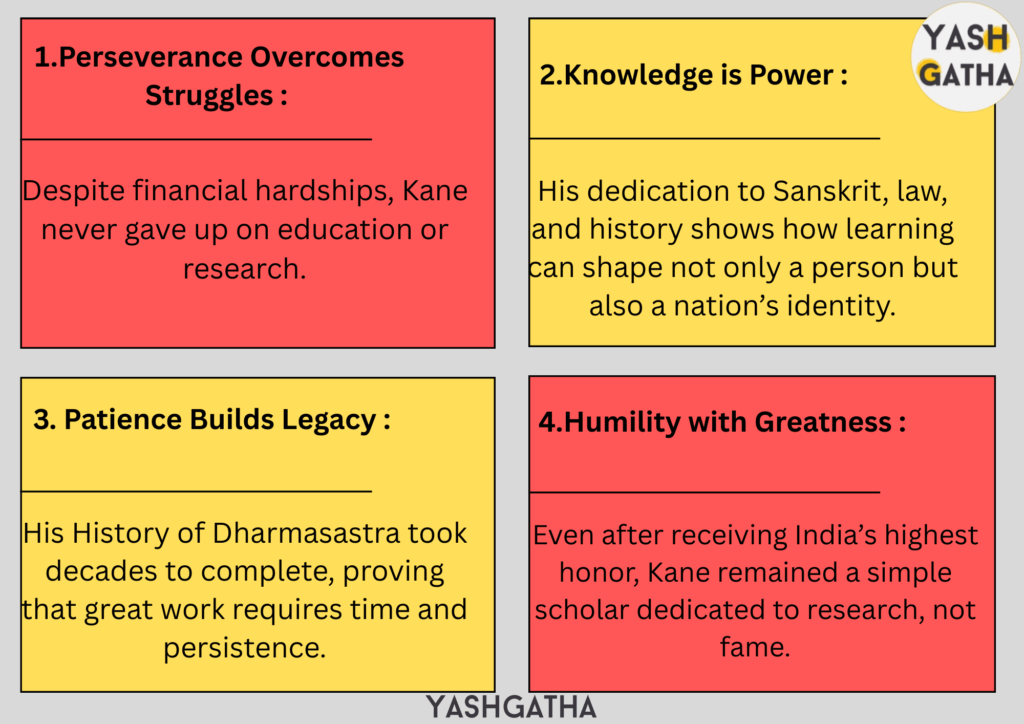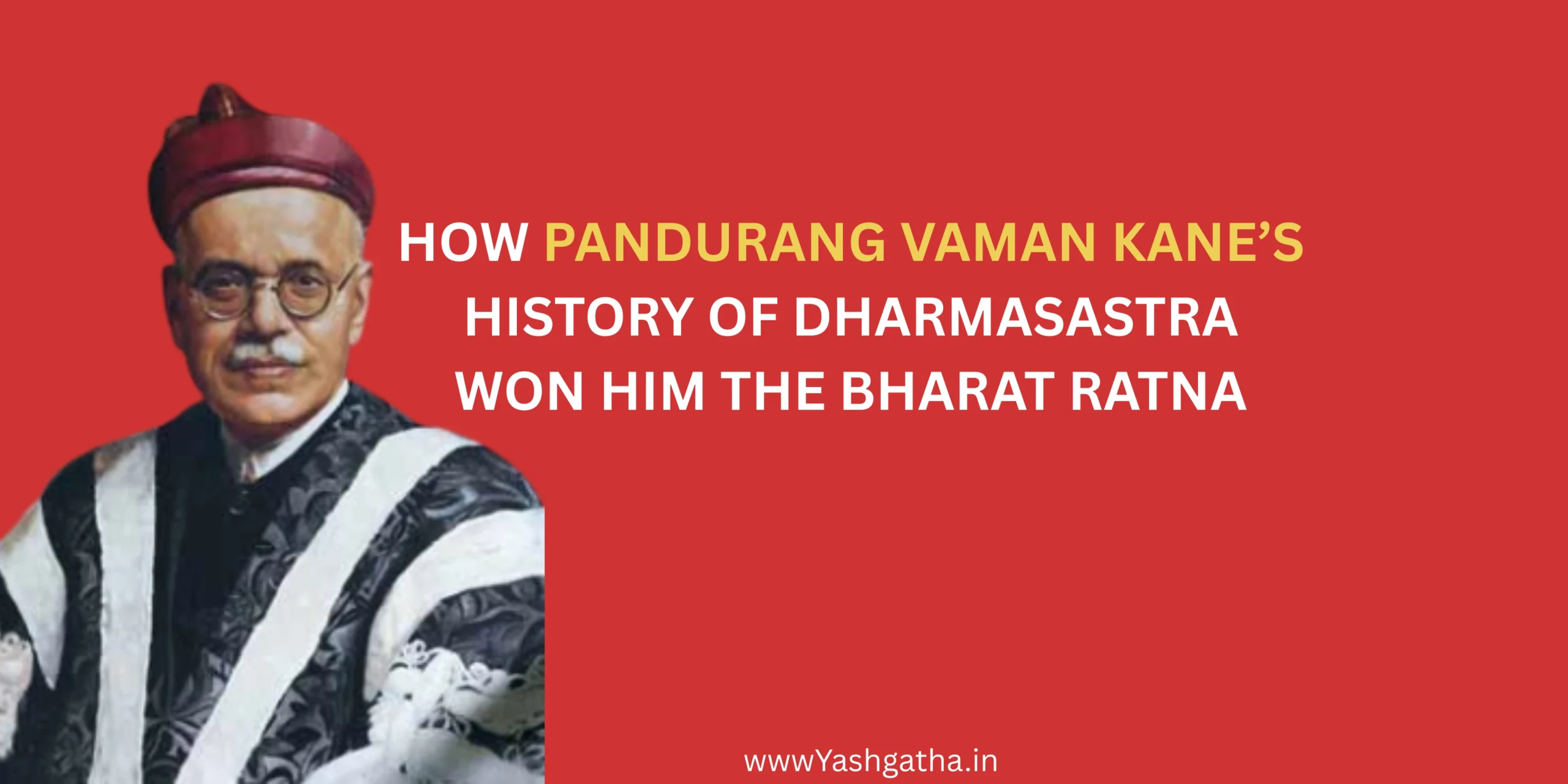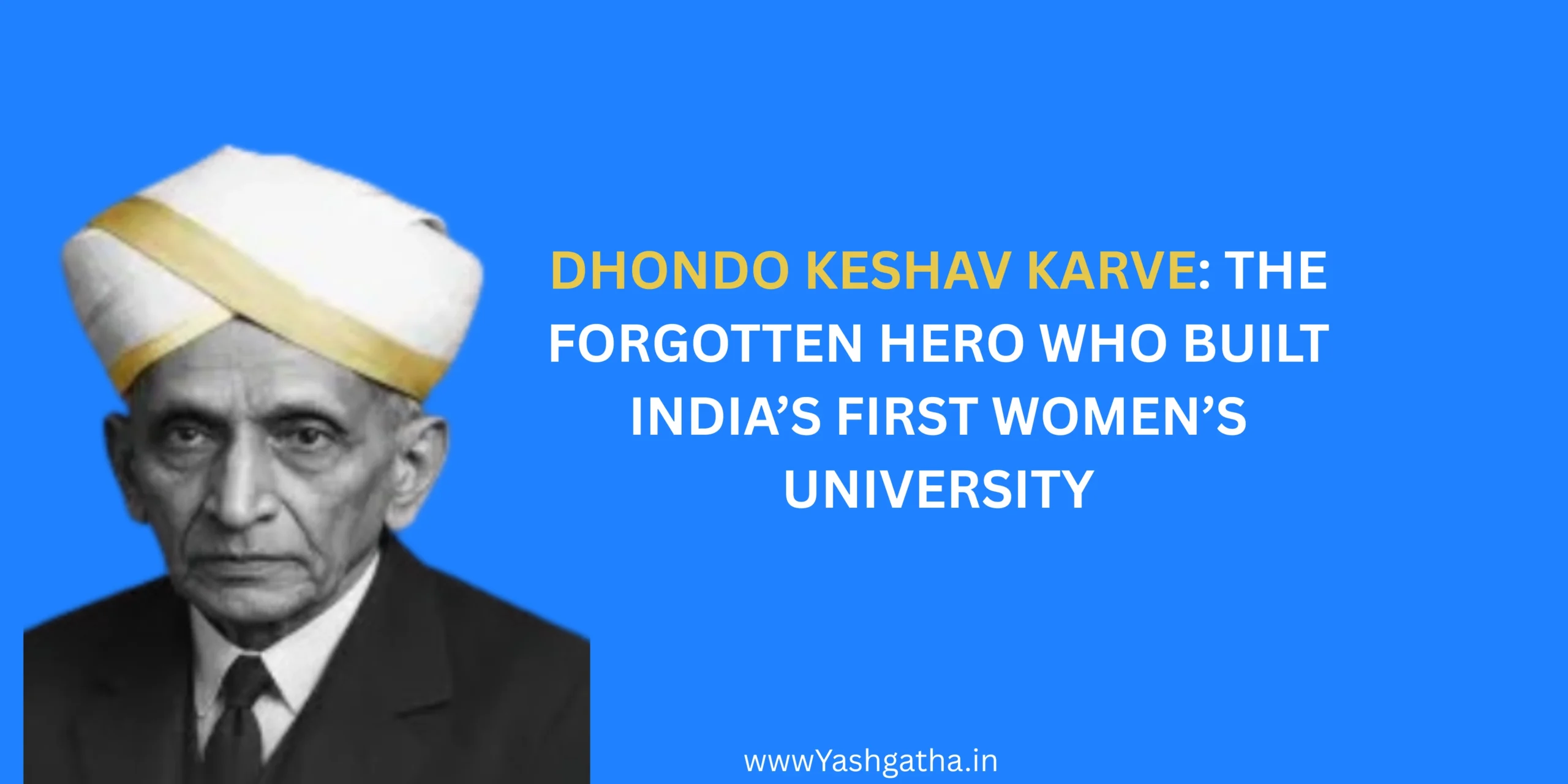Pandurang Vaman Kane, born in Ratnagiri, Maharashtra, was a renowned Sanskrit scholar, historian, and lawyer who received the Bharat Ratna in 1963 for his monumental contribution to literature, education, law, and Indology; he is best remembered for his timeless masterpiece History of Dharmasastra, often described as the most comprehensive study of India’s cultural and legal heritage, inspiring generations with his belief that “The study of Dharma is the study of life itself.”

Pandurang Vaman Kane, the man behind the legendary History of Dharmasastra, dedicated his life to preserving India’s cultural and legal heritage. From humble beginnings in Ratnagiri to receiving the Bharat Ratna in 1963, his journey is a story of perseverance, scholarship, and timeless wisdom that still shapes modern India.
Early Life & Challenges :
Pandurang Vaman Kane was born on 7 May 1880 in a modest family in Ratnagiri, Maharashtra. From the very beginning, his life was marked by simplicity and struggle. Growing up in a small coastal town with limited resources, Kane’s childhood was far from privileged. Financial constraints often forced his family to make difficult choices, but Kane’s thirst for knowledge was unstoppable.
He showed a deep interest in Sanskrit, classical literature, and philosophy at a young age, and his brilliance quickly set him apart from his peers. Despite hardships, he excelled academically and pursued higher education at Mumbai University, where he studied both Sanskrit and Law. This unique combination of disciplines later became the foundation of his groundbreaking research.
Life, however, was never easy. Kane had to balance his studies with family responsibilities, and later, while working as a teacher and professor, he often struggled to find time for his passion: research. Yet, instead of surrendering to obstacles, he transformed them into stepping stones. His ability to persevere through financial difficulties, lack of resources, and personal sacrifices speaks volumes about his dedication.
It was this resilience that ultimately shaped Kane’s destiny. Without wealth or privilege, but armed with unshakable determination, he laid the groundwork for what would become one of the greatest intellectual contributions in Indian history — the History of Dharmasastra.
The Turning Point :
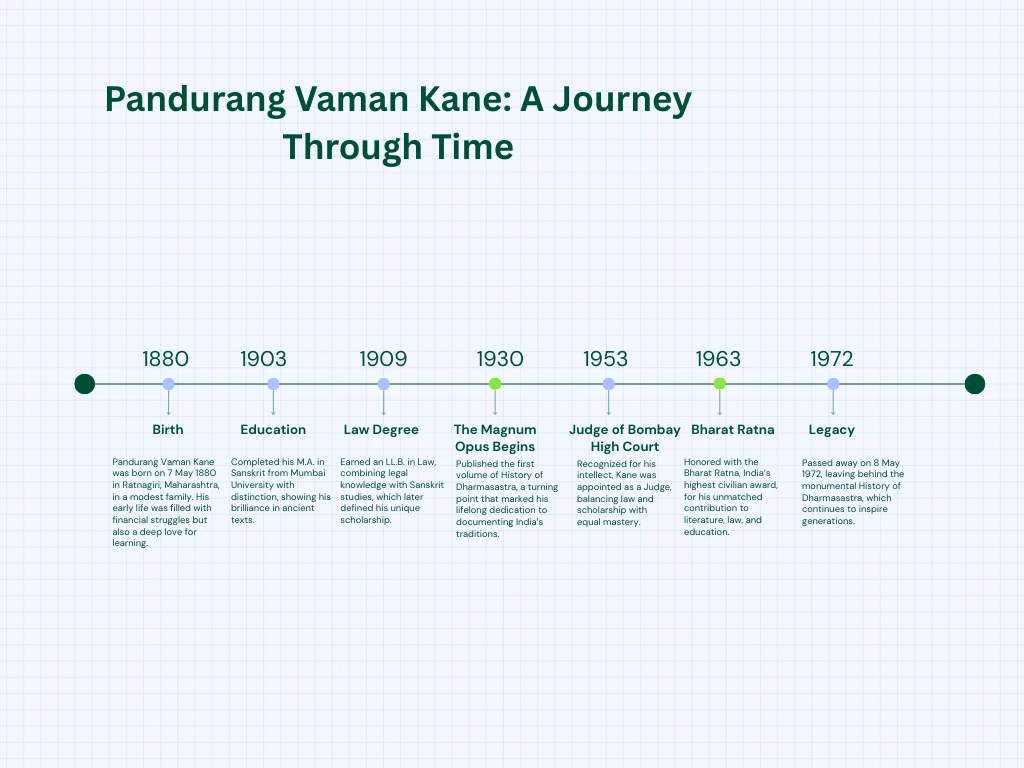
Every great scholar has a defining moment that changes the course of history. For Pandurang Vaman Kane, the turning point was his decision to dedicate his life to compiling and analyzing India’s vast ancient legal, cultural, and religious texts into one monumental work — the History of Dharmasastra.
This wasn’t just a book; it was a five-volume encyclopedia that spanned over 6,500 pages and took nearly four decades of relentless research and writing. Through this magnum opus, Kane not only preserved India’s past but also connected it to modern legal and social frameworks.
The Recognition & Award :
Pandurang Vaman Kane’s lifelong dedication to scholarship reached its peak of recognition in 1963, when he was honored with the Bharat Ratna, India’s highest civilian award. This moment was not just a personal victory but also a celebration of India’s intellectual tradition.
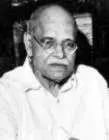
credit:bharatdiscovery.org
His magnum opus, the five-volume History of Dharmasastra, covering over 6,500 pages, became the primary reason for this honor. It was hailed worldwide as one of the most comprehensive works ever written on ancient Indian law, customs, and culture.
The award placed him among India’s greatest minds — alongside leaders, philosophers, and reformers. Unlike many recipients, Kane was not a politician or activist, but a scholar whose pen became mightier than any sword.
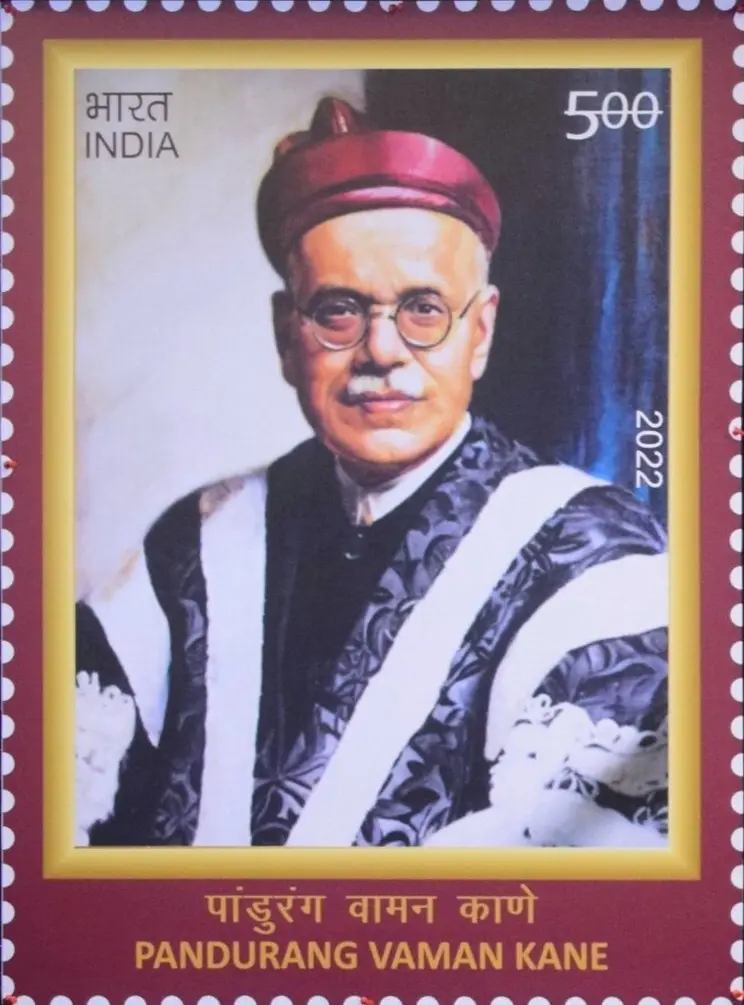
credit:wikipedia
What Changed After the Awards :
Receiving the Bharat Ratna in 1963 marked a turning point not only in Pandurang Vaman Kane’s life but also in the way the world looked at Indian scholarship. The honor brought his decades of hard work into the national spotlight.
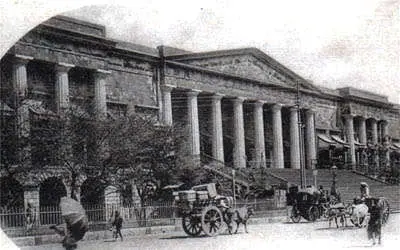
Pandurag Vaman Kane in hall mumbai
credit:wikipedia
Key Changes After the Bharat Ratna:
- Global Recognition: His History of Dharmasastra became a benchmark reference for scholars across the world.
- Scholarly Influence: Indian universities and research centers began using his work as a primary academic source.
- Cross-Cultural Impact: International Indologists and legal experts cited Kane’s research in comparative law and cultural studies.
- Inspiration for Students: He became a role model for young researchers, proving that perseverance could overcome all obstacles.
- Cultural Respect: He was celebrated as a national treasure who bridged India’s ancient wisdom with modern thought.
- Lasting Legacy: Even after receiving the award, Kane continued to research, guide, and inspire until his passing in 1972.
Yashgatha Takeways:
Pandurang Vaman Kane’s journey from a small town in Ratnagiri to becoming a Bharat Ratna awardee is packed with timeless lessons for all of us:
